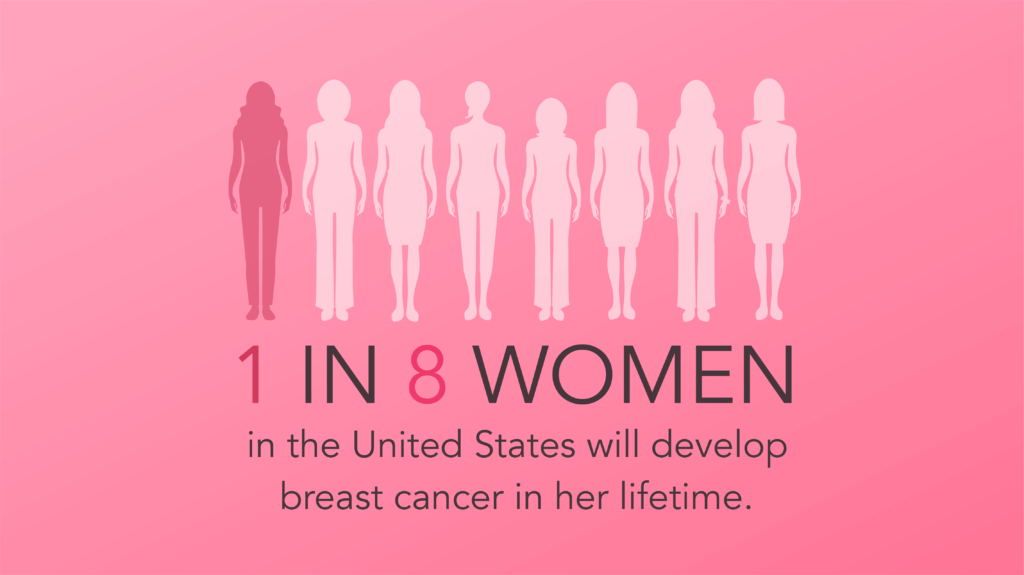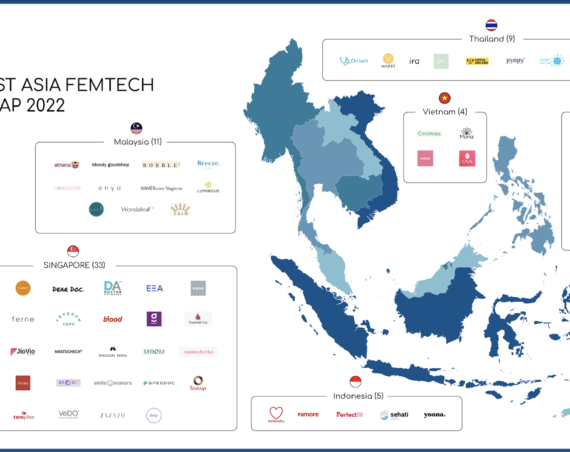Every October public service organizations, professional medical associations, government agencies, companies and NGOs team up to organize Breast Cancer Awareness Month, a campaign to promote breast cancer awareness, share information on the disease and provide greater access to screening services. According to research by the National Breast Cancer Foundation, 1 in 8 women in the United States will develop breast cancer in their lifetime and an estimated 41760 women will die from it in the United States this year. Early Detection is key and women diagnosed with breast cancer at a localized stage have a 5-year survival rate of 99%.

The current gold standard for early detection and breast cancer screening, mammography, requires high capital cost and experienced radiographers. Some startups have recognized this and are working on making early tumor detection more cost-effective and accessible. Today we would like to introduce you to 7 of them.
1. iSONO
iSONO has developed ATUSA, a patented 3D ultrasound scanner and AI to perform whole breast scans and localize breast lesions with consistent accuracy matching the best operators using traditional ultrasound equipment. ATUSA is a wearable accessory that enables fast and easy 3D image acquisition and allows physicians to perform repeatable breast ultrasound imaging at point of care without the need for a trained ultrasound operator. This enables personalized longitudinal monitoring, change tracking and makes remote care accessible.
2. NIRAMAI
NIRAMAI has developed an AI powered, non-contact, non-invasive breast cancer screening solution, that is accurate, portable, automated and privacy aware. Their solution uses machine intelligence over thermography images to enable a low-cost solution, that requires minimal human supervision and can detect cancer at a much earlier stage, than traditional diagnostic methods or self-examination.
3. Pink of View
It is indisputable that early detection saves lives. Early detection often involves extensive medical testing, which creates a challenge in terms of logistics, resources and awareness creation. Pink of View is working on a solution to address this and is developing a self disease risk assessment application, that helps to make early detection more affordable by adjusting medical tests to the individual’s risk level.
4. Eva Clinic
At Eva Clinic, women will be able to perform a self-guided breast health assessment in just 10 mintues. The Eva breast exam is a 100% private and painless experience, enabled by a thermal breast monitoring system, that is non-invasive and doesn’t emit any type of radiation. Eva Clinic’s technology and algorithms analyze the information and map the breasts’ thermal patterns to assess abnormalities. If a risk is detected, a plan of action to perform the necessary clinical analysis is provided.
5. iBreastExam
iBreastExam’s sensors accurately assess and identliy tissue elasticity differences between hard and stiff breast tumors versus normal breast tissue. The patented tactile sensor technology was invented at Drevel University and uses Piezoelectric Sensor Array. iBrestExam have developed the world’s first handheld and mobile health solution for breast lesions detection.
6. Braster
Braster has created solutions for both home use and professional use. Their system uses contact thermography (no radiation emitted) and telemedicine to allow for detection of suspicious changes in breasts at home as well as in professional outpatient clinics. Braster’s mission is to provide non-invasive, inexpensive and reliable breast examination.
7. Discovering Hands
Discovering Hands is a European initiative founded by Dr. Frank Hoffmann, a senior gynaecologist, who recognized the unique tactile abilities of visually impaired women in detecting the smallest lumps of breast cancer during physical examinations. Discovering Hands has been training blind women to become Medical Tactile Examiners for the past 10 years and is currently active in Germany and Austria.




1 Comment